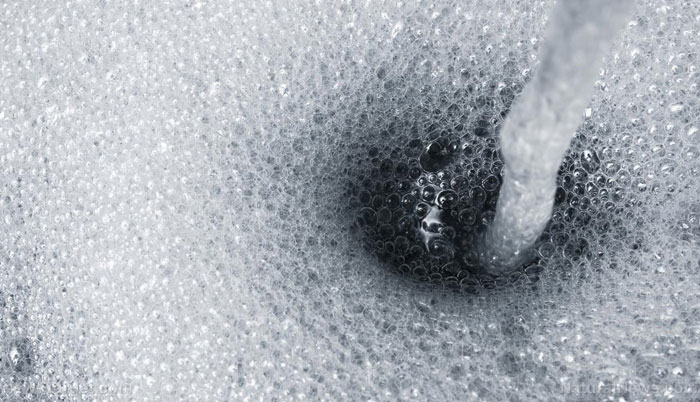![]() Home > Lifestyle
Home > Lifestyle
How To Use Plants To Maintain Personal Hygiene Even When SHTF

News Target | Natural News
![]() November 1st, 2021 | 13:13 PM |
November 1st, 2021 | 13:13 PM | ![]() 4085 views
4085 views
NATURALNEWS
Soap, shampoo and toothpaste are just some of the products that people use daily to keep themselves clean, yet preppers and survivalists often take these personal hygiene items for granted. Naturally, they’d be too concerned about making it out alive when disaster strikes or when SHTF to think about the importance of such items.
But living off-grid or in the wilderness can be challenging if you neglect sanitation and personal hygiene – even if you have food, water and shelter covered.
It’s important that you continue to practice good personal hygiene even in the event of a disaster because many illnesses quickly spread in a filthy environment. Personal hygiene items like soap and shampoo could save your life in such an environment where your physical health is constantly being put to the test.
But don’t fret if you run out of personal hygiene items in the wild or didn’t pack any in your bugout bag (BOB). There are always natural alternatives that you can use in a pinch.
Plants that can be used as soap
Your hands are likely picking up germs every time you touch an object. These germs should be eliminated since they can put you at risk of contracting infectious diseases if they get into your mouth or inside wounds. Therefore, it’s important to wash your hands with soap before touching food or treating wounds.
In the absence of soap, look for plants that contain saponins – toxic chemicals that protect plants from bacteria and other pathogens. As such, plants containing saponins shouldn’t be ingested. But when mixed with water and used as soap, saponins foam up. The foam will help rid your hands of germs, much like regular soap.
The following plants have leaves high in saponins that can be used as a natural soap alternative:
Yucca
Mountain lilac
Soap root
Bouncing bet
Buffalo gourd
Once you’ve found one of the plants listed above, collect a bunch of leaves and cut them into strands. Rub them in your hands with some water until foaming occurs. If there’s wild cucumber growing in your area, get one. You can then use that as a loofa to remove dirt, dead skin cells, oil and other impurities from your skin.
You can also rub your skin with ash from burned hardwood, such as beech, maple, alder, teak, walnut, hickory and mahogany. Boil the ashes in water for 30 minutes or until liquid lye starts to float. Lye has cleaning effects, which is why it is commonly used to make commercial cleaning products.
Plants that help maintain optimal oral health
Not brushing your teeth and rinsing your mouth can lead to oral problems like cavities, which can make it hard to eat food or speak. Oral problems can also cause pain and bad breath.
Keep your gums and teeth clean by rinsing with pine needle tea. Native Americans would also chew on the pine needles themselves to get rid of debris between their teeth. For fresh breath, chew fresh parsley, fennel, dill, cardamom, basil and cilantro. These plants have powerful active compounds that help dispel bad breath.
You can also use fir twigs as a toothbrush if you cut the needles down to the length of a usual toothbrush.
Additionally, the sweet sap of sugar pines and fir trees can be used as a chewing gum to keep bad breath at bay. Other notable plants with sap worth chewing are sweetgum, red grass, skeleton weed and pilotweed.
Plants that clean hair
Keeping your hair clean in the wild is also important because fleas, lice and other parasites could turn your hair into their nest if left unchecked. Bites from these parasites can lead to an inflamed scalp. They can also transmit diseases.
You can use plants high in saponins to wash your hair. Some plants, like mountain lilac and soap root, also give hair a nice, clean smell. For your combing or brushing needs, you can make a brush out of yucca leaves.
Plants that can be used as toilet paper
Toilet paper is an essential survival item that preppers make sure to include in their BOBs. If you run out of toilet paper, don’t fret. When nature calls, you can use soft leaves from the following plants as toilet paper:
Mullein – This plant has large, soft and pliant leaves covered in a downy fur.
Wooly lamb’s ear – The leaves of this plant are large, soft, thick and absorbent.
Thimbleberry – This edible berry plant has large, soft leaves.
Bigleaf aster – Historically, the leaves of this plant were used as toilet paper across the Midwest.
In a survival scenario, you risk contracting diseases if you ignore personal hygiene. Fortunately, there are many plants you can use to clean yourself in the absence of personal hygiene items.
Source:
courtesy of NATURALNEWS
by Divina Ramirez
If you have any stories or news that you would like to share with the global online community, please feel free to share it with us by contacting us directly at [email protected]